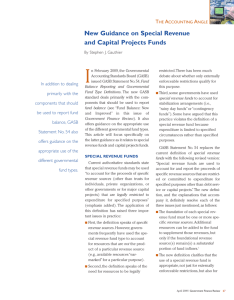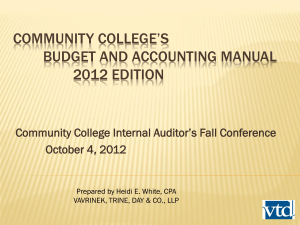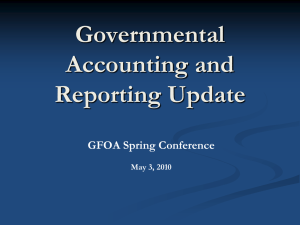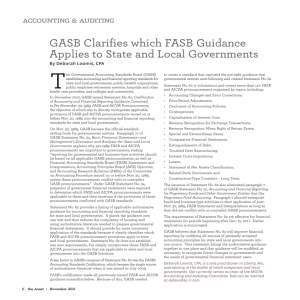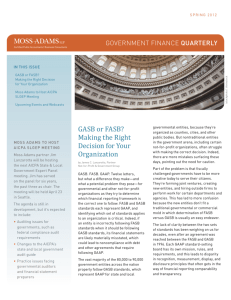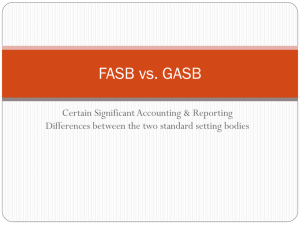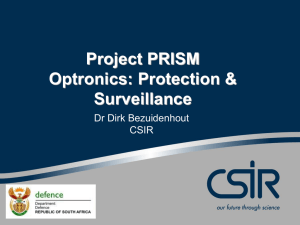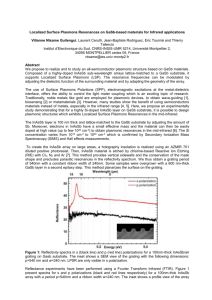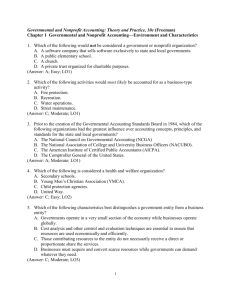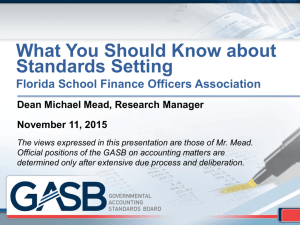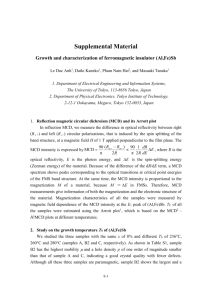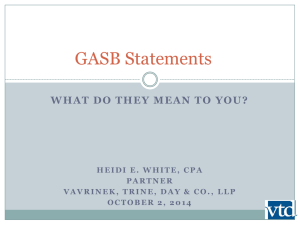The turf battle among standard setters
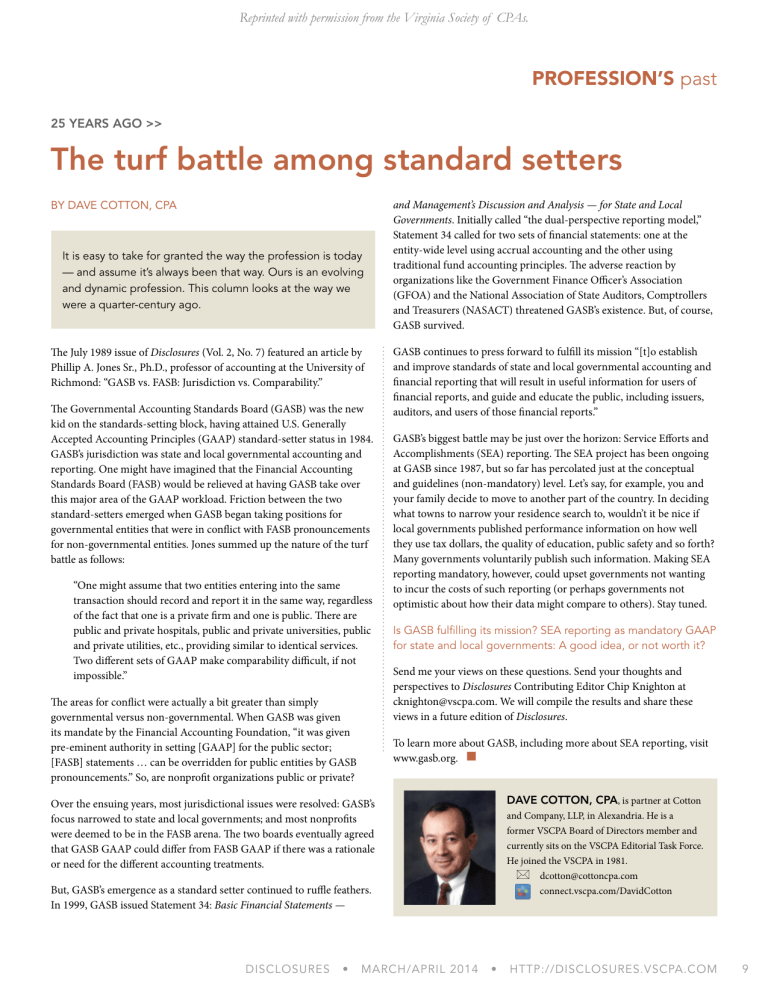
5. Alaska
Reprinted with permission from the Virginia Society of CPAs.
PROFESSION’S
past
25 YEARS AGO >>
The turf battle among standard setters
BY DAVE COTTON, CPA
It is easy to take for granted the way the profession is today
— and assume it’s always been that way. Ours is an evolving and dynamic profession. This column looks at the way we were a quarter-century ago.
The July 1989 issue of Disclosures (Vol. 2, No. 7) featured an article by
Phillip A. Jones Sr., Ph.D., professor of accounting at the University of
Richmond: “GASB vs. FASB: Jurisdiction vs. Comparability.”
The Governmental Accounting Standards Board (GASB) was the new kid on the standards-setting block, having attained U.S. Generally
Accepted Accounting Principles (GAAP) standard-setter status in 1984.
GASB’s jurisdiction was state and local governmental accounting and reporting. One might have imagined that the Financial Accounting
Standards Board (FASB) would be relieved at having GASB take over this major area of the GAAP workload. Friction between the two standard-setters emerged when GASB began taking positions for governmental entities that were in conflict with FASB pronouncements for non-governmental entities. Jones summed up the nature of the turf battle as follows:
“One might assume that two entities entering into the same transaction should record and report it in the same way, regardless of the fact that one is a private firm and one is public. There are public and private hospitals, public and private universities, public and private utilities, etc., providing similar to identical services.
Two different sets of GAAP make comparability difficult, if not impossible.”
The areas for conflict were actually a bit greater than simply governmental versus non-governmental. When GASB was given its mandate by the Financial Accounting Foundation, “it was given pre-eminent authority in setting [GAAP] for the public sector;
[FASB] statements … can be overridden for public entities by GASB pronouncements.” So, are nonprofit organizations public or private?
Over the ensuing years, most jurisdictional issues were resolved: GASB’s focus narrowed to state and local governments; and most nonprofits were deemed to be in the FASB arena. The two boards eventually agreed that GASB GAAP could differ from FASB GAAP if there was a rationale or need for the different accounting treatments.
But, GASB’s emergence as a standard setter continued to ruffle feathers.
In 1999, GASB issued Statement 34: Basic Financial Statements — and Management’s Discussion and Analysis — for State and Local
Governments . Initially called “the dual-perspective reporting model,”
Statement 34 called for two sets of financial statements: one at the entity-wide level using accrual accounting and the other using traditional fund accounting principles. The adverse reaction by organizations like the Government Finance Officer’s Association
(GFOA) and the National Association of State Auditors, Comptrollers and Treasurers (NASACT) threatened GASB’s existence. But, of course,
GASB survived.
GASB continues to press forward to fulfill its mission “[t]o establish and improve standards of state and local governmental accounting and financial reporting that will result in useful information for users of financial reports, and guide and educate the public, including issuers, auditors, and users of those financial reports.”
GASB’s biggest battle may be just over the horizon: Service Efforts and
Accomplishments (SEA) reporting. The SEA project has been ongoing at GASB since 1987, but so far has percolated just at the conceptual and guidelines (non-mandatory) level. Let’s say, for example, you and your family decide to move to another part of the country. In deciding what towns to narrow your residence search to, wouldn’t it be nice if local governments published performance information on how well they use tax dollars, the quality of education, public safety and so forth?
Many governments voluntarily publish such information. Making SEA reporting mandatory, however, could upset governments not wanting to incur the costs of such reporting (or perhaps governments not optimistic about how their data might compare to others). Stay tuned.
Is GASB fulfilling its mission? SEA reporting as mandatory GAAP for state and local governments: A good idea, or not worth it?
Send me your views on these questions. Send your thoughts and perspectives to Disclosures Contributing Editor Chip Knighton at cknighton@vscpa.com. We will compile the results and share these views in a future edition of Disclosures .
To learn more about GASB, including more about SEA reporting, visit www.gasb.org. n
DAVE COTTON, CPA , is partner at Cotton and Company, LLP, in Alexandria. He is a former VSCPA Board of Directors member and currently sits on the VSCPA Editorial Task Force.
He joined the VSCPA in 1981.
* dcotton@cottoncpa.com connect.vscpa.com/DavidCotton
DISCLOSURES • MARCH/APRIL 2014 • HTTP://DISCLOSURES.VSCPA.COM 9
